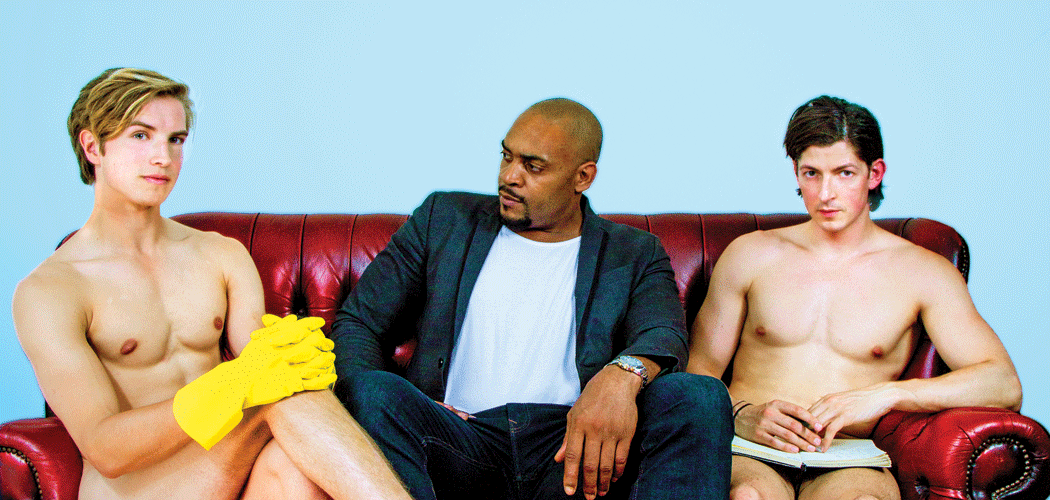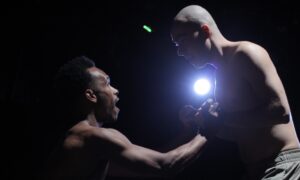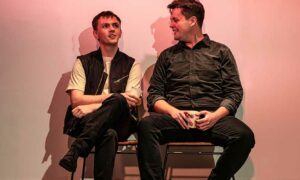Coming Clean was written by the late Kevin Elyot in the early 80s and is opening at the Kings Head Theatre this week. Dave Cross spoke to director Adam Spreadbury-Maher about this enticing tale of complicated love and relationships which is part of the theatre’s Queer Festival ’17.
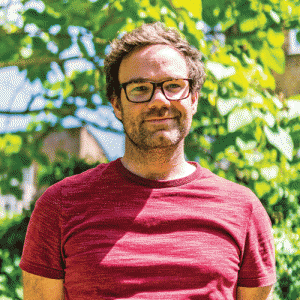
Hi Adam, how are the rehearsals going?
Rehearsals are going really well. The actors are brilliant and it’s such a joy to work on such a beautiful play. David Parker who was the age of the lead characters and lived in Kentish Town in 1982 has joined us in rehearsals to chat about his experiences of gay life at the time. It’s been really insightful.
What is the story of Coming Clean?
It’s about a couple of guys who have been together for five years in a post partial-decriminalisation world where cottaging and cruising are still part of the scene, but there’s a younger generation rising up. It explores what happens when a relationship transitions from being open to one partner wanting monogamy and the other not. The tone is really funny with moments of pathos and strong writing from a brilliant playwright.
Why did you decide to make this particular play part of the Kings Head Theatre Queer Festival?
After the success of the revival of My Night With Reg I thought it would be interesting to look at Kevin Eylot’s other work. I felt it was an appropriate time to celebrate the delicious culture of the early 80s and in the month of the 50th anniversary of decriminalisation.
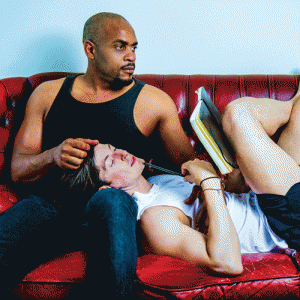
Can you talk us through the characters?
Greg is 38 and from New York. He’s a successful writer; a serious, intellectual kind of guy who’s written an empowering book for gay men. His partner is Tony, who’s from Birmingham and trying to break into being a writer. Tony likes to go out and party with his friend William who’s from Bradford and loves cottaging and cruising. Then there’s Robert. He’s a 25 year-old out-of-work actor. He comes from a good background but he can’t get much work so he ends up working as Greg and Tony’s cleaner. Robert’s from a different generation; he can’t remember the time before decriminalisation, which throws up some interesting conflicts and questions.
The play is set in the early 1980s, what are big differences that the play shows up from now?
Well, the most obvious one is that the play is set before the internet. People are meeting on the beat, or in cruising locations, or in discos and bars. The other big one is that the play is set before the AIDS crisis but after decriminalisation, so it exists in this brief period in the 1980s when homosexuality had become slightly more normalised but before promiscuous sex became linked to a death sentence. It’s a different world; there’s a violent attack in the play and the characters decide not to go the police. I don’t think that would happen now.
Why do you think modern audiences can relate to the story and the characters?
The questions of monogamy versus polygamy and telling the truth no matter what versus protecting your lover is as old as the hills. The dynamic of wandering eyes for something younger will never change.
Can you tell us about making the set authentically 80s?
We’re having such a great time capturing the detail of the world of an early 1980’s Kentish Town flat. It’s really fun; we’ve spent a lot of time in charity shops and on Ebay. Even my boyfriend’s grandma has donated some old Tupperware!
Coming Clean is at the Kings Head Theatre, 115 Upper St Islington, N1.
Tickets from 0207 226 8561 or kingsheadtheatre.com.



